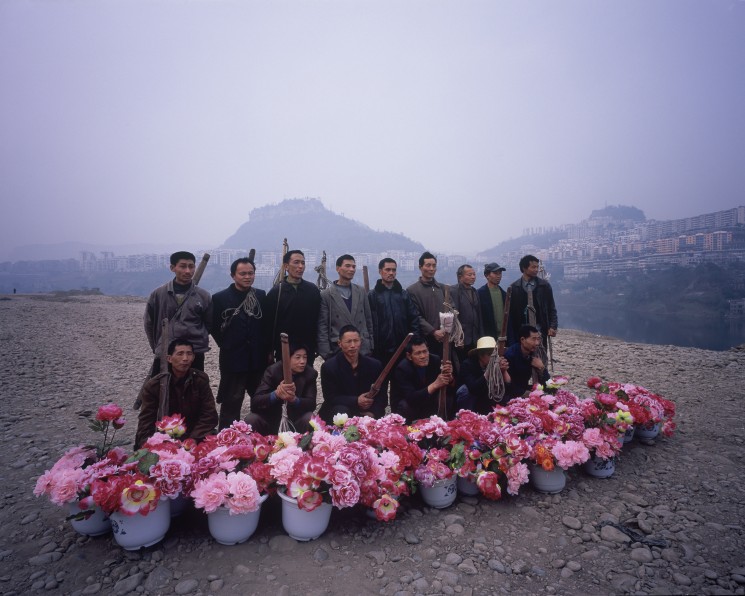Chen Qiulin
Garden No. 3

“My work has always been focusing on the changes of urban landscape, of time and of people. In exploring the changes and the implication of these processes, I am trying to record the world today through a very personal attitude and approach.”
In her works Chen Qiulin (born 1975) critically examines the economic and political revolutions of modern day China. Her videos, photographs and performances visualize the drastic urbanization and contradictions taking place in China, which often seems to be trapped between the past and the future, tradition and the presence.
Despite her rather traditional education at the printmaking department of the Sichuan Fine Arts Institute, Chen already started to focus on the medium of film early on in her oeuvre. The Three Gorges Project at the Yangtze River which flooded large stretches of land, left 1.5 million people homeless, and changed her home province forever turned into a dramatic personal experience for Chen. This deeply painful experience resulted in the artist’s most famous series to date (The Garden, 2007).
Chen Qiulin’s works are exhibited worldwide at museums like the Hammer Museum in Los Angeles in 2009. She additionally takes part in international exhibition projects (The Wall: Reshaping Contemporary Chinese Art at the Millenium Art Museum in Peking and the Albright-Knox Art Gallery in New York in 2005; China Power Station II at the Astrup Fearnley Museum of Modern Art in Oslo in 2007 and Displacement: The Three Gorges Dam and Contemporary Chinese Art at the David and Alfred Smart Museum of Art the University of Chicago in 2008).
The video work The Garden from 2007 is part of a four-part series focusing on the drastic results of the Three Gorges Project. Most of the time two agricultural workers are shown carrying peonies through a newly erected metropolis. Construction sites, skyscrapers and grey streets define the cityscape. Both protagonists silently walk through the city only accompanied by music or a monotonous beat.
In Chinese culture peonies have always had a special meaning and have been presented in the visual arts for centuries as a symbol for beauty and life. In The Garden these flowers nevertheless are in stark contrast to the dreary and unnatural scenery presented. This impression is emphasized by the fact that the peonies are plastic flowers.
When filming The Garden Chen interviewed agricultural workers. They had come to the city hoping to become rich. The reality turned out to be the opposite. For Chen the plastic flowers function a symbol of these men’s dream to become ’successful city dwellers’. A plastic dream. The artist nevertheless emphasizes, “What I learned from the process is that, artists are problem-identifiers, but never the problem-solvers and even less the arbitrators of social problems.”